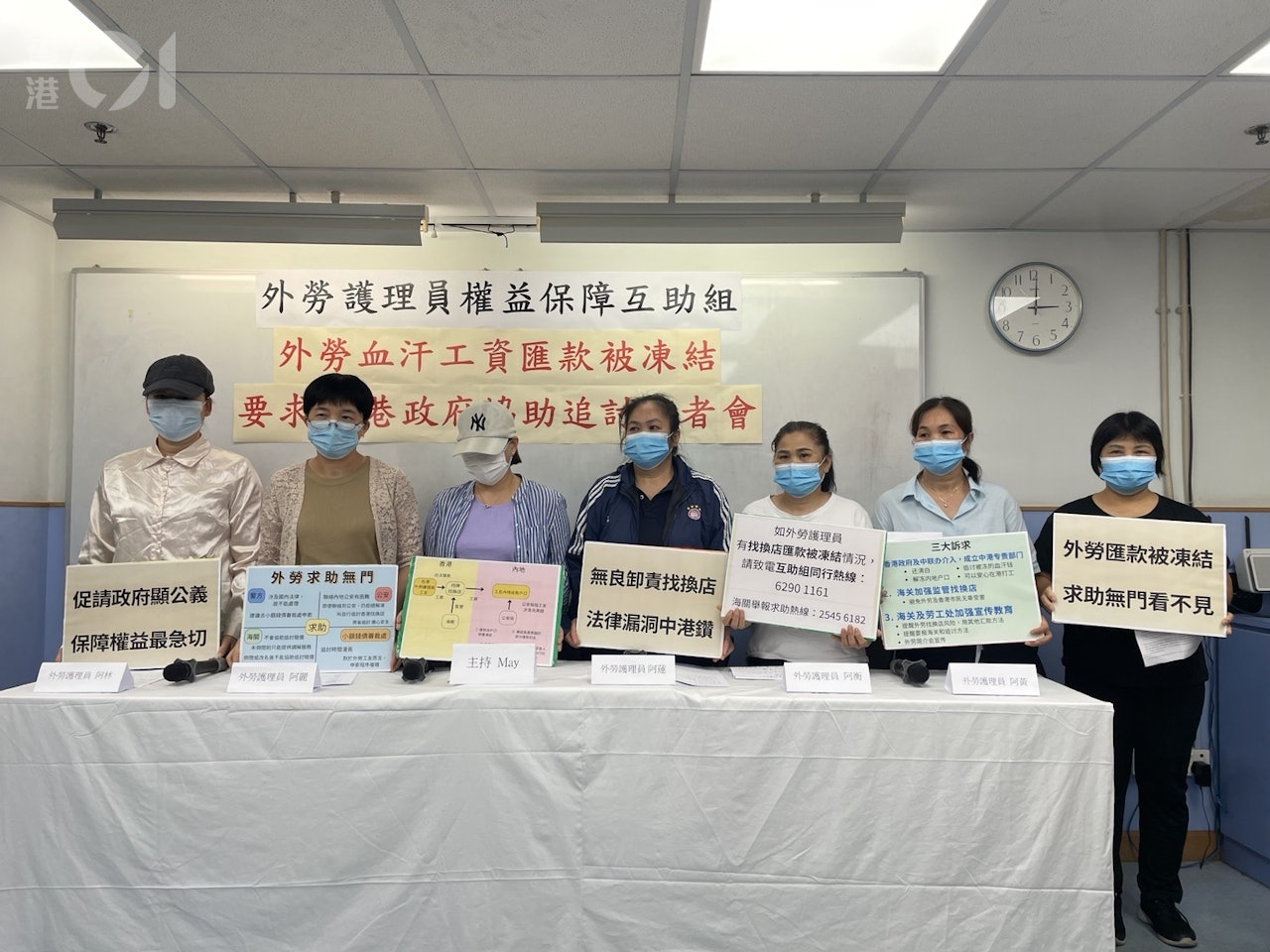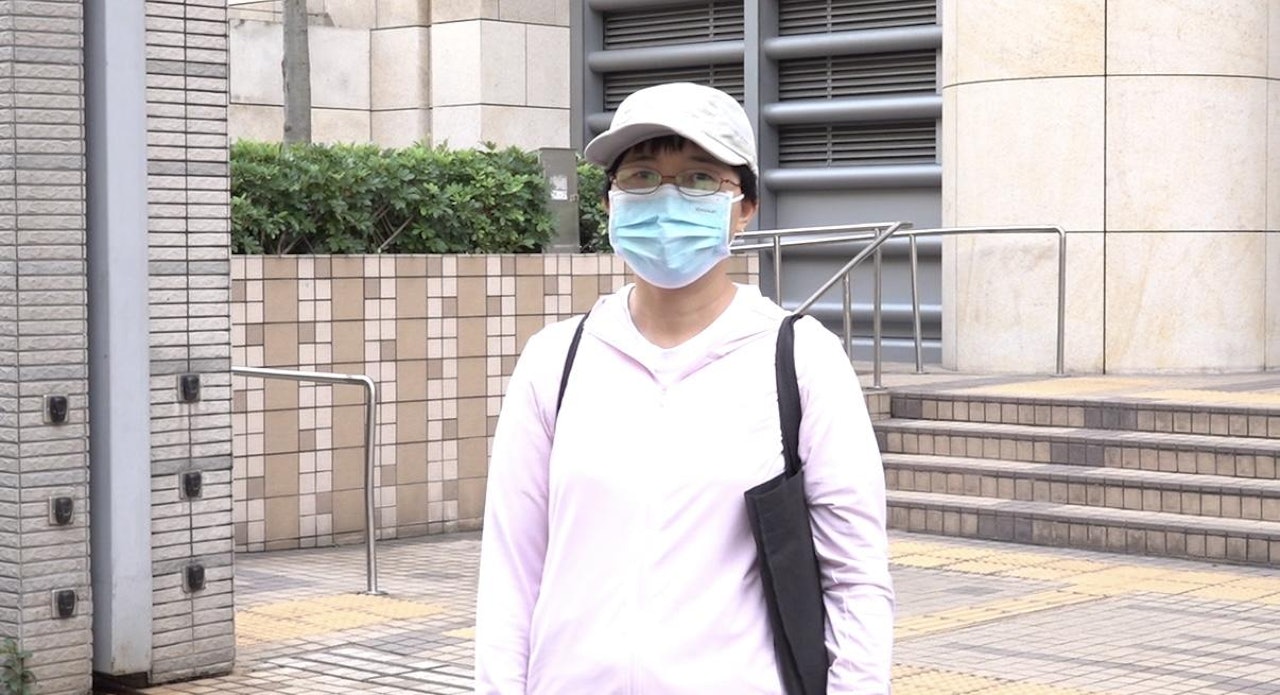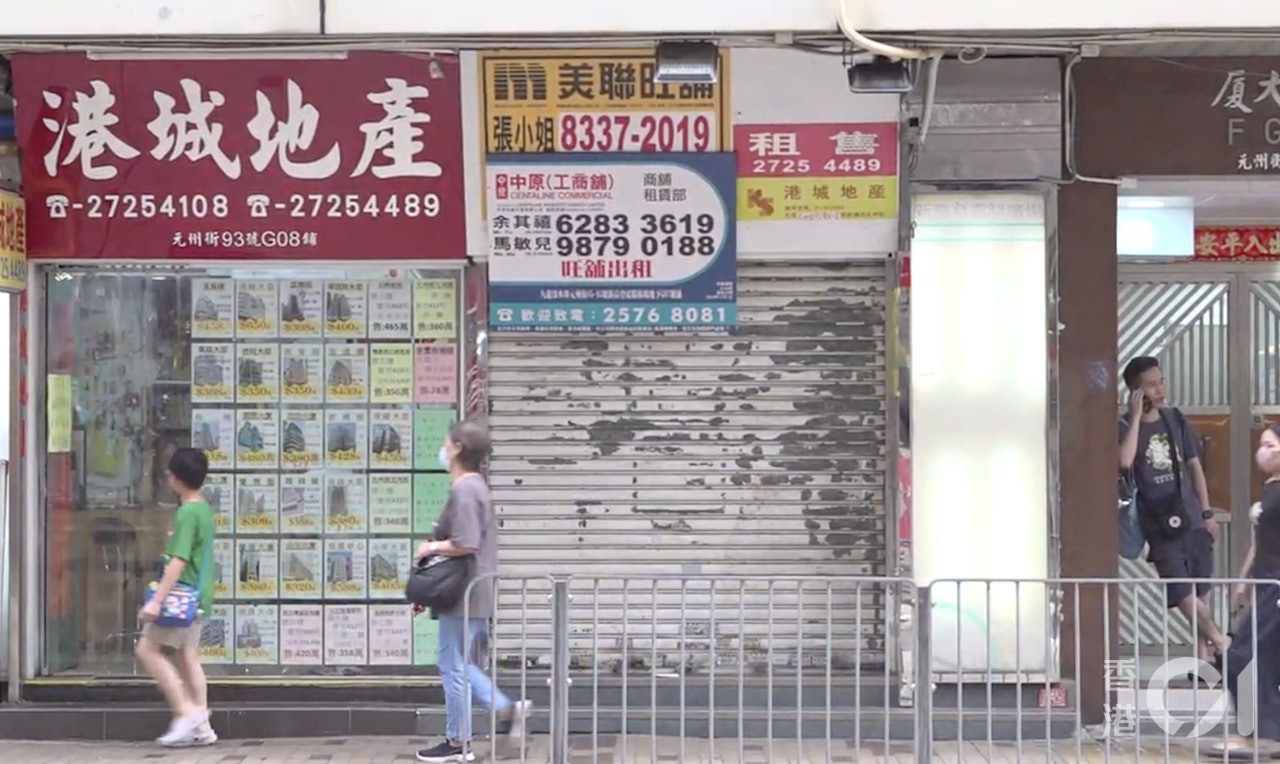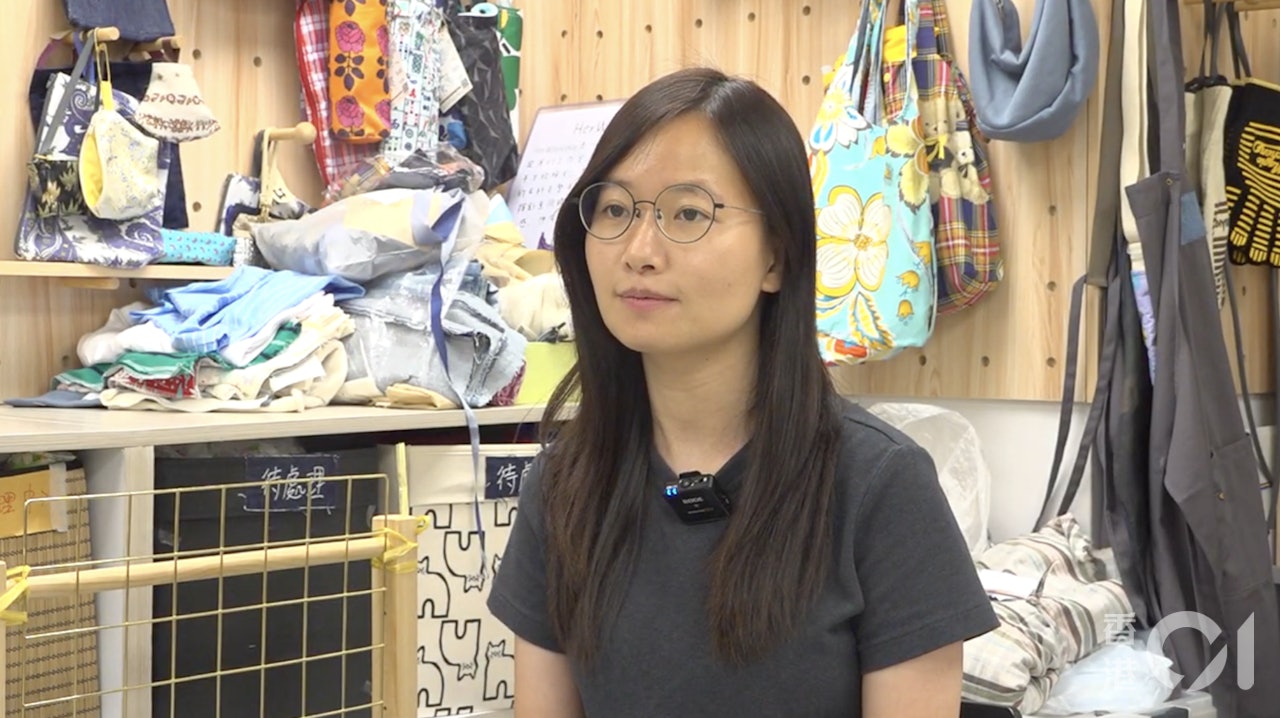A group of migrant care workers held a press conference last year, complaining that after they transferred money to the mainland through unscrupulous money changers in 2023, their funds were frozen or deducted, and they lost all their money. They urged government departments to strengthen supervision and help them recover their hard-earned money. A worker filed a lawsuit with the Small Debts Tribunal and won the case, but the money changer has closed down, the licensee refused to pay the money, and even claimed that he had applied for bankruptcy. Today, two years later, many workers are still unable to claim compensation. They lament that the money they worked hard to earn from working late at night has been lost. They say they are "wronged and uncomfortable" and criticize "the unscrupulous boss for taking advantage of Hong Kong's legal loopholes (loopholes)", but they will not give up the pursuit of compensation. They also reminded everyone to be careful of remittance traps and suggested that it is safest to bring cash back to the mainland for deposit.Social workers who have followed up on their situation said that there are still 20 to 30 workers whose funds have been frozen or deducted. She pointed out that both Hong Kong residents and foreign workers would mistakenly believe that remittances from licensed money change shops were safe and reliable, eventually resulting in losses. She urged the two places to set up a cross-border mechanism to help victims recover money.Worker Ali said at a press conference last year that the freezing of her remittances had caused her emotional distress.


 Chen Lok-tung, a social worker at the Caritas Lai Chi Kok Workers Centre, revealed that they first came into contact with the case of foreign caregiver Ali, and then set up the "Foreign Caregiver Rights Protection Mutual Aid Group Press Conference" to gather other victims. In 2023, Ali remitted about 56,000 yuan to the mainland through Shun Tat RMB Exchange Co., Ltd., and the money was frozen or even taken away. She followed the advice of the police and customs and filed a lawsuit against the Small Claims Tribunal in the same year. A female director surnamed Li represented the money exchange shop to respond to the case.According to Chen, the judge mentioned in the verdict that the money changer used the account of a "tengzai (third-party intermediary)" to transfer money to the customer's mainland account. If the funds of the "tengzai" were illegal, all the accounts associated with it would be implicated. This kind of remittance method violated a reasonable consumer agreement. The judge ruled that Ali won the case and the money changer should make full compensation.But disappointingly, the money changer involved had closed down before the lawsuit was concluded, and the shop became a vacant shop. Even though Ali contacted the female director surnamed Li to ask for repayment after winning the lawsuit, the other party said that she was not personally responsible because of the "registration of a limited company" and even claimed that she had filed for bankruptcy, leaving Ali with no recourse.In addition to Ali, two other workers, Axia (left) and Alan (right), also remitted money back to the mainland through Shunda Money Exchange Shop and suffered losses.Workers complain: I don’t steal, rob, or eh!Not only Ali, a foreign caregiver, was affected by Shunda Exchange Shop's bad remittance practices, but many workers were also affected. Two years ago, Alan remitted a total salary of about 26,000 yuan back to his brother's account in the Mainland for his son's decoration. Unexpectedly, the next day, my brother informed me that the money could not be withdrawn, the account showed abnormality, and the thousands of dollars originally stored in my brother's account were also frozen. The siblings didn't understand what was going on at first, and waited anxiously for the money to be thawed. A few months later, they discovered that the total amount of money in their account, 31,000 yuan, had been taken away by the Criminal Police Team of the Anhui Provincial Public Security Department on the grounds of fraud."I'm not stealing, not robbing, not uh, I have the company address to check, and he (the police) is silent." Alan called the police in Anhui, hoping to get his hard-earned money returned, but was not accepted. He asked Alan to return to Hong Kong to report the crime and recover the loss from the money change shop. "You should catch that boat boy, catch that fraudster. You can't make up for the money of our victims. They said I didn't win, so they drove me away."A total of 31,000 yuan in Alan's account was deducted by the Criminal Police Team of the Anhui Provincial Public Security Department on the grounds of fraud.Leaving hometown to work in Hong Kong and losing hard-earned money. Worker: I want to cry but I don’t have any tears.Since then, Alan has been running around asking for help from relevant departments in China and Hong Kong. Frankly, he has been kicked around like a ball, but he still has no results for two years. The exchange shop's attitude also made him very angry. "You gave us some money to go sightseeing. Zhong was so arrogant, and you asked people to compete with him. He wanted me to do something with my money. You blew me away, and your words are so irritating.""I worked late into the night to earn some money. I left my hometown and came to Hong Kong to do nursing. The money I earned was taken away and shared. I felt uncomfortable and wronged. I wanted to cry without tears." Recalling the experience of the past two years, Alan couldn't hide his sadness and anger. Although she doesn't have high hopes of recovering the money, she's going to press on.As Axia needed money urgently for home decoration and daily life, she transferred HKD 30,000 to her mainland account through Shunda Money Exchange Shop. There was no abnormality in the withdrawal at first, but when the account balance was about NT$13,000, the account was frozen.After being unfrozen once, it was frozen again. She was worried that it would be seized too early.Another victim, Axia, also transferred money in 2023. Because she needed money urgently for home renovation and life, she transferred 30,000 Hong Kong dollars to her mainland account through Shun Tat Money Changer. At first, there was no abnormality in withdrawing money, but when the account balance was about 13,000 yuan, the account was frozen. She inquired with the mainland bank and learned that it was the Zhuhai City Police Station that froze her account. After inquiry, the account was unfrozen. She thought it meant that she had been cleared of all charges, so she was not in a hurry to withdraw the remaining money. As a result, it was soon frozen again. The police said that the money was suspected to be related to the fraud case and refused to unfreeze it.Two years later, Ah Xia has no hope of recovering the money from the money exchange shop and laments that "the unscrupulous boss has taken advantage of Hong Kong's legal loopholes." Now her account is still frozen, and she is worried that one day it will be deducted and she will lose all her money. However, seeing other cases in the mutual aid group successfully unfrozen with the help of social workers has given her a glimmer of hope again. "I will not give up and will continue to work hard to recover. I hope the Hong Kong departments will put pressure on the mainland."Workmate Axia still contacted the Gongbei Center several times last month to check on the progress of the freeze, but there has been no response.Money changers in Hong Kong are licensed and supervised by the Hong Kong Customs. Many citizens and migrant workers regard their remittance services as legal and safe. However, in fact, money changers do not have the legal and compliant remittance qualifications in the Mainland. Social worker Chan Lok-tung explained that some money changers would transfer money through the personal accounts of "boat agents" (third-party intermediaries) in the Mainland in order to circumvent Mainland regulations. Once the "boat agent" account is involved in crimes such as money laundering, the money transferred through it will be considered as related funds and affected.More than 20 workers' accounts are still frozen or withheld, and cross-border mechanism support is promotedShe revealed that after the establishment of the mutual aid group, a total of more than 60 cases were received, involving a total of 3 million yuan, with the highest amount exceeding 100,000 yuan. After many months of hard work, including meetings with the Customs and Excise Department, the accounts of some workers have now been unfrozen, but the accounts of more than 20 foreign workers are still frozen or deducted. Since foreign workers working in Hong Kong find it difficult to constantly travel between the two places and travel across states and provinces to pursue claims, she urges higher-level departments in Hong Kong and the Mainland to set up a cross-border mechanism to follow up and support cases more effectively. They should also think about how to assist some victims whose money has been withheld. "Customs can put pressure on money exchange shops and urge them to pay compensation as soon as possible, but for some money exchange shops that are really bankrupt, it is actually very difficult for customs to tell them."The Mutual Aid Group for the Protection of the Rights and Interests of Foreign Care Workers has sent letters to the government headquarters, pleading with the Chief Executive and the central government to intervene to ensure that foreign workers recover their hard-earned money.Customs: Contacting Mainland law enforcement agencies to discuss more effective handling methodsCustoms responded to inquiries and stated that from 2024 to the first quarter of 2025, Customs received a total of 792 requests for help from people regarding remittances or frozen bank accounts. For all cases, Customs has contacted the people seeking help and followed up. After Customs’ intervention, 245 people seeking help have handled the relevant situations through bilateral negotiations as of the first quarter of 2025. Customs is following up on the remaining cases and is also contacting relevant Mainland law enforcement agencies to explore how to more effectively assist consumers in handling remittances and freezing of bank accounts in the Mainland.In terms of consumer protection, the Customs and Excise Department has been promoting how to choose legal money exchange and remittance services and beware of money laundering traps through social media and leaflets from time to time. In the first quarter of 2024-2025, the Customs and Excise Department held more than 110 lectures for new arrivals to Hong Kong, promoting and educating more than 14,000 employees. In addition, the Customs and Excise Department also regularly holds lectures and distributes circulars to remind the money service industry to comply with the provisions of the Ordinance and consumer protection regulations.Customs and Excise Department reminds consumers to patronize licensed money service operators. When choosing a remittance service, it is necessary to consider whether some overly favorable exchange rates hide risks, and to keep transaction receipts and related records.Customs also pointed out that if a money service operator is found to have its remittance arrangement frozen by the Mainland authorities, Customs will impose specific license conditions on it, requiring the money service operator to strengthen the security of the remittance channel. If the situation persists and the money service operator fails to properly handle the consumer's request for help, its license may be temporarily suspended or revoked.Original URL: HK01
Chen Lok-tung, a social worker at the Caritas Lai Chi Kok Workers Centre, revealed that they first came into contact with the case of foreign caregiver Ali, and then set up the "Foreign Caregiver Rights Protection Mutual Aid Group Press Conference" to gather other victims. In 2023, Ali remitted about 56,000 yuan to the mainland through Shun Tat RMB Exchange Co., Ltd., and the money was frozen or even taken away. She followed the advice of the police and customs and filed a lawsuit against the Small Claims Tribunal in the same year. A female director surnamed Li represented the money exchange shop to respond to the case.According to Chen, the judge mentioned in the verdict that the money changer used the account of a "tengzai (third-party intermediary)" to transfer money to the customer's mainland account. If the funds of the "tengzai" were illegal, all the accounts associated with it would be implicated. This kind of remittance method violated a reasonable consumer agreement. The judge ruled that Ali won the case and the money changer should make full compensation.But disappointingly, the money changer involved had closed down before the lawsuit was concluded, and the shop became a vacant shop. Even though Ali contacted the female director surnamed Li to ask for repayment after winning the lawsuit, the other party said that she was not personally responsible because of the "registration of a limited company" and even claimed that she had filed for bankruptcy, leaving Ali with no recourse.In addition to Ali, two other workers, Axia (left) and Alan (right), also remitted money back to the mainland through Shunda Money Exchange Shop and suffered losses.Workers complain: I don’t steal, rob, or eh!Not only Ali, a foreign caregiver, was affected by Shunda Exchange Shop's bad remittance practices, but many workers were also affected. Two years ago, Alan remitted a total salary of about 26,000 yuan back to his brother's account in the Mainland for his son's decoration. Unexpectedly, the next day, my brother informed me that the money could not be withdrawn, the account showed abnormality, and the thousands of dollars originally stored in my brother's account were also frozen. The siblings didn't understand what was going on at first, and waited anxiously for the money to be thawed. A few months later, they discovered that the total amount of money in their account, 31,000 yuan, had been taken away by the Criminal Police Team of the Anhui Provincial Public Security Department on the grounds of fraud."I'm not stealing, not robbing, not uh, I have the company address to check, and he (the police) is silent." Alan called the police in Anhui, hoping to get his hard-earned money returned, but was not accepted. He asked Alan to return to Hong Kong to report the crime and recover the loss from the money change shop. "You should catch that boat boy, catch that fraudster. You can't make up for the money of our victims. They said I didn't win, so they drove me away."A total of 31,000 yuan in Alan's account was deducted by the Criminal Police Team of the Anhui Provincial Public Security Department on the grounds of fraud.Leaving hometown to work in Hong Kong and losing hard-earned money. Worker: I want to cry but I don’t have any tears.Since then, Alan has been running around asking for help from relevant departments in China and Hong Kong. Frankly, he has been kicked around like a ball, but he still has no results for two years. The exchange shop's attitude also made him very angry. "You gave us some money to go sightseeing. Zhong was so arrogant, and you asked people to compete with him. He wanted me to do something with my money. You blew me away, and your words are so irritating.""I worked late into the night to earn some money. I left my hometown and came to Hong Kong to do nursing. The money I earned was taken away and shared. I felt uncomfortable and wronged. I wanted to cry without tears." Recalling the experience of the past two years, Alan couldn't hide his sadness and anger. Although she doesn't have high hopes of recovering the money, she's going to press on.As Axia needed money urgently for home decoration and daily life, she transferred HKD 30,000 to her mainland account through Shunda Money Exchange Shop. There was no abnormality in the withdrawal at first, but when the account balance was about NT$13,000, the account was frozen.After being unfrozen once, it was frozen again. She was worried that it would be seized too early.Another victim, Axia, also transferred money in 2023. Because she needed money urgently for home renovation and life, she transferred 30,000 Hong Kong dollars to her mainland account through Shun Tat Money Changer. At first, there was no abnormality in withdrawing money, but when the account balance was about 13,000 yuan, the account was frozen. She inquired with the mainland bank and learned that it was the Zhuhai City Police Station that froze her account. After inquiry, the account was unfrozen. She thought it meant that she had been cleared of all charges, so she was not in a hurry to withdraw the remaining money. As a result, it was soon frozen again. The police said that the money was suspected to be related to the fraud case and refused to unfreeze it.Two years later, Ah Xia has no hope of recovering the money from the money exchange shop and laments that "the unscrupulous boss has taken advantage of Hong Kong's legal loopholes." Now her account is still frozen, and she is worried that one day it will be deducted and she will lose all her money. However, seeing other cases in the mutual aid group successfully unfrozen with the help of social workers has given her a glimmer of hope again. "I will not give up and will continue to work hard to recover. I hope the Hong Kong departments will put pressure on the mainland."Workmate Axia still contacted the Gongbei Center several times last month to check on the progress of the freeze, but there has been no response.Money changers in Hong Kong are licensed and supervised by the Hong Kong Customs. Many citizens and migrant workers regard their remittance services as legal and safe. However, in fact, money changers do not have the legal and compliant remittance qualifications in the Mainland. Social worker Chan Lok-tung explained that some money changers would transfer money through the personal accounts of "boat agents" (third-party intermediaries) in the Mainland in order to circumvent Mainland regulations. Once the "boat agent" account is involved in crimes such as money laundering, the money transferred through it will be considered as related funds and affected.More than 20 workers' accounts are still frozen or withheld, and cross-border mechanism support is promotedShe revealed that after the establishment of the mutual aid group, a total of more than 60 cases were received, involving a total of 3 million yuan, with the highest amount exceeding 100,000 yuan. After many months of hard work, including meetings with the Customs and Excise Department, the accounts of some workers have now been unfrozen, but the accounts of more than 20 foreign workers are still frozen or deducted. Since foreign workers working in Hong Kong find it difficult to constantly travel between the two places and travel across states and provinces to pursue claims, she urges higher-level departments in Hong Kong and the Mainland to set up a cross-border mechanism to follow up and support cases more effectively. They should also think about how to assist some victims whose money has been withheld. "Customs can put pressure on money exchange shops and urge them to pay compensation as soon as possible, but for some money exchange shops that are really bankrupt, it is actually very difficult for customs to tell them."The Mutual Aid Group for the Protection of the Rights and Interests of Foreign Care Workers has sent letters to the government headquarters, pleading with the Chief Executive and the central government to intervene to ensure that foreign workers recover their hard-earned money.Customs: Contacting Mainland law enforcement agencies to discuss more effective handling methodsCustoms responded to inquiries and stated that from 2024 to the first quarter of 2025, Customs received a total of 792 requests for help from people regarding remittances or frozen bank accounts. For all cases, Customs has contacted the people seeking help and followed up. After Customs’ intervention, 245 people seeking help have handled the relevant situations through bilateral negotiations as of the first quarter of 2025. Customs is following up on the remaining cases and is also contacting relevant Mainland law enforcement agencies to explore how to more effectively assist consumers in handling remittances and freezing of bank accounts in the Mainland.In terms of consumer protection, the Customs and Excise Department has been promoting how to choose legal money exchange and remittance services and beware of money laundering traps through social media and leaflets from time to time. In the first quarter of 2024-2025, the Customs and Excise Department held more than 110 lectures for new arrivals to Hong Kong, promoting and educating more than 14,000 employees. In addition, the Customs and Excise Department also regularly holds lectures and distributes circulars to remind the money service industry to comply with the provisions of the Ordinance and consumer protection regulations.Customs and Excise Department reminds consumers to patronize licensed money service operators. When choosing a remittance service, it is necessary to consider whether some overly favorable exchange rates hide risks, and to keep transaction receipts and related records.Customs also pointed out that if a money service operator is found to have its remittance arrangement frozen by the Mainland authorities, Customs will impose specific license conditions on it, requiring the money service operator to strengthen the security of the remittance channel. If the situation persists and the money service operator fails to properly handle the consumer's request for help, its license may be temporarily suspended or revoked.Original URL: HK01
Money transfers from money changers turned into black money | Unscrupulous shops closed down and went bankrupt, migrant workers feel aggrieved that their hard-earned money went to waste
2025-05-19




